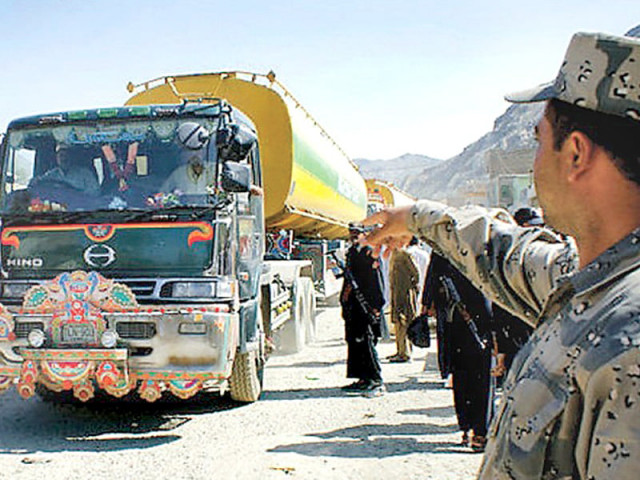Euphoria evaporates: Pakistan and India fail to strike oil trade deal
Delhi asked to compete in PSO oil tenders for supply via land route.

As Pakistan wants to meet only 20% to 25% of its needs for petroleum products from India to avoid overreliance on the old rival due to security concerns, the two countries have failed to seal a big deal as Islamabad has asked Delhi to compete in tenders floated by Pakistan State Oil (PSO) for oil supply through land route.
At present, Pakistan has a long-term oil supply agreement with Kuwait Petroleum Corporation (KPC) and India is also interested in entering into such an arrangement. However, according to sources, Pakistan has asked Indian authorities in recent talks in New Delhi to participate in PSO tenders for oil supply through land route of Wagah, which is currently not allowed.
Sources said the petroleum ministry had asked the commerce ministry to allow import of petroleum products via land route. “India has agreed to participate in oil import tenders,” a source said.
Pakistan is interested in importing petrol, diesel and furnace oil. However, it will meet only additional oil requirements from India and will continue to import from the Gulf countries, including Kuwait.
“We will continue to import oil from Kuwait and other Gulf countries in a bid to ensure secured supplies,” a government official said, adding imports from India would not be more than 20% to 25% because of security considerations.
Pakistan wanted to keep other sources of oil supply open, so that it could get oil from them if India stopped shipments in case of some tension, he said.
In case of a long-term supply contract, India had offered to lay an oil pipeline from its territory to Pakistan’s border to meet entire fuel requirements of the neighbour.
“Now, the pipeline plan has been shelved,” the official said and pointed out that India would be able to provide oil at cheaper rates only if transportation charges were less than the cost of shipment from Gulf countries.
At present, there is no ban on import of petroleum products from India through sea route, but import of liquids including oil products through land is not allowed. But Indian companies do not export oil through sea due to high shipment cost.
Later, Pakistan agreed with India to allow import of petroleum products through land route of Wagah in talks between commerce secretaries of the two countries.
India has also been asked to meet specifications for furnace oil, which will be consumed by independent power plants (IPPs) in Pakistan. “We have long-term agreements with the IPPs for supply of furnace oil with certain specifications,” the official said.
However, some experts are of the view that Pakistan can only import petrol from India as it will be difficult for old vehicles to run on diesel of Euro-III and Euro-IV standards produced in India. Pakistan’s refineries are producing diesel of Euro-0 standard.
In case of furnace oil, it may not be feasible for Indian refineries to export due to long distance and high transportation cost. Indian refineries, which produce furnace oil, are in the south of the country, with an aim to cater to markets of Sri Lanka and Singapore.
Pakistan consumes 6.9 million tons of diesel per year, of which 3.2 to 3.4 million tons is produced domestically and the rest is imported. Furnace oil demand stands at about nine million tons, of which domestic refineries produce about 2.5 million tons.
Published in The Express Tribune, July 21st, 2012.



















COMMENTS
Comments are moderated and generally will be posted if they are on-topic and not abusive.
For more information, please see our Comments FAQ